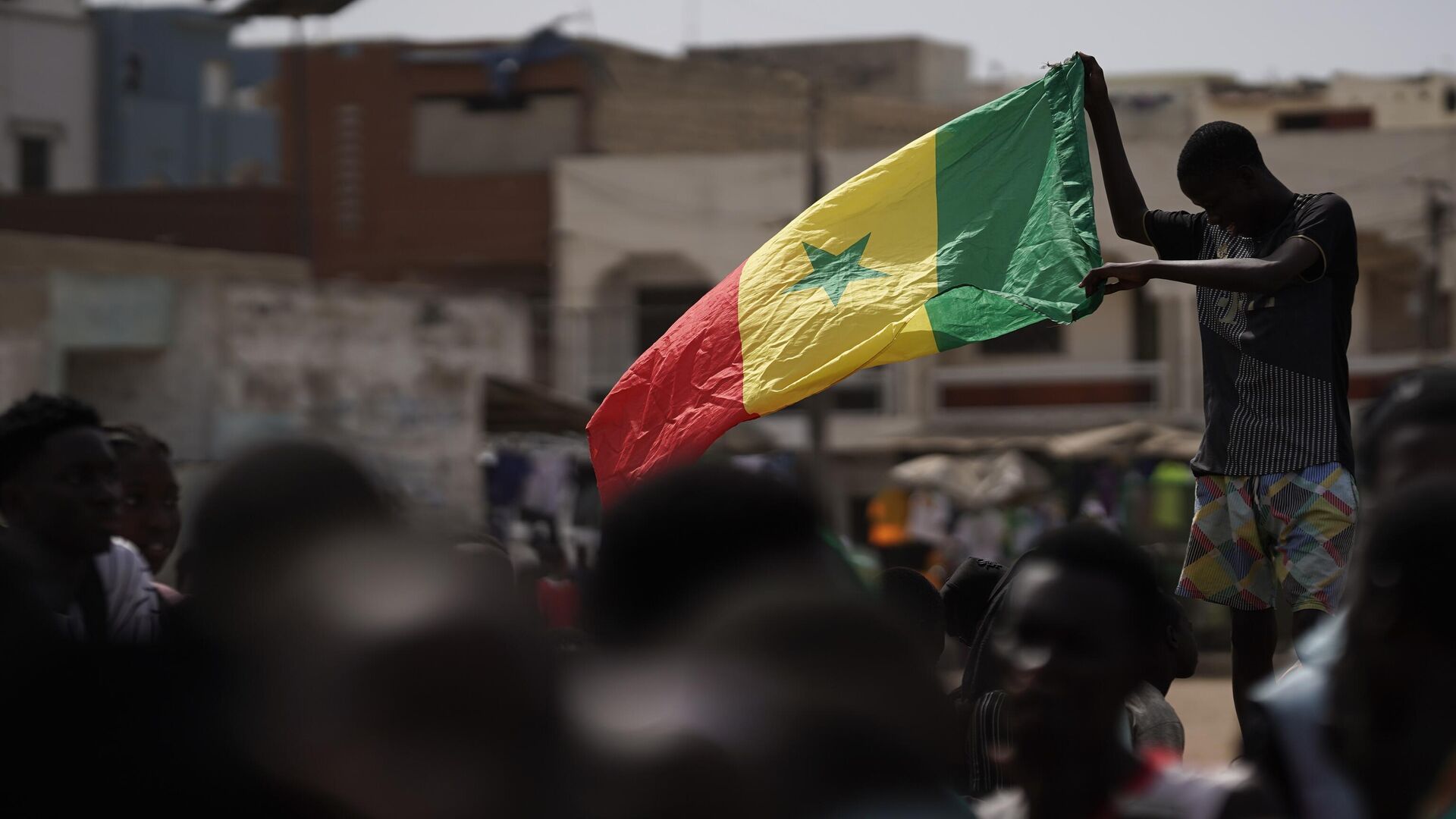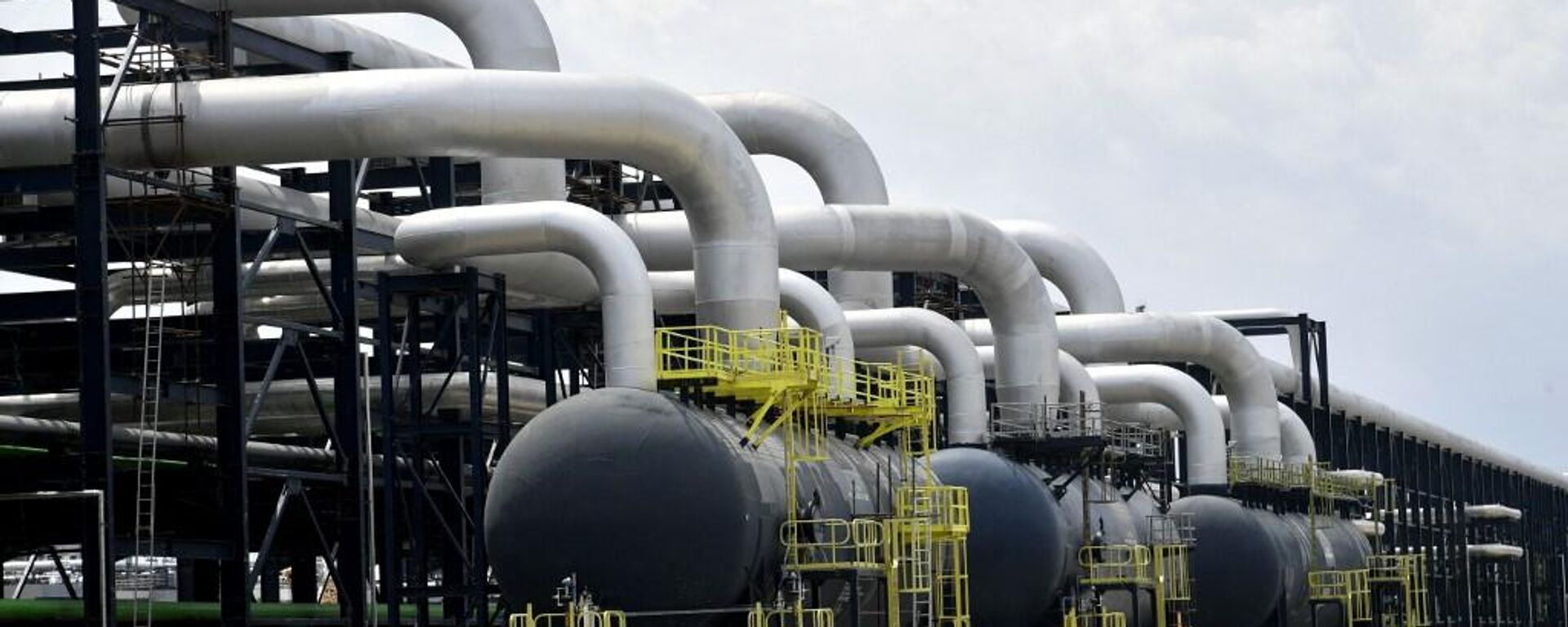https://en.sputniknews.africa/20231126/british-petroleum-exits-senegalese-gas-field-amid-disputes-over-domestic-prioritization-1063792184.html
British Petroleum Exits Senegalese Gas Field Amid Disputes Over Domestic Prioritization
British Petroleum Exits Senegalese Gas Field Amid Disputes Over Domestic Prioritization
Sputnik Africa
A number of prominent African businessmen, including Omar Ibrahim, the head of the African Petroleum Producers' Organization, and Sim Tshabalala, the head of... 26.11.2023, Sputnik Africa
2023-11-26T11:50+0100
2023-11-26T11:50+0100
2023-11-26T11:50+0100
senegal
energy
gas
export
sub-saharan africa
sputnik
united kingdom (uk)
west africa
https://cdn1.img.sputniknews.africa/img/07e7/0b/1a/1063793858_0:160:3072:1888_1920x0_80_0_0_be074134c7f362fe5e0f7f09e1391ac2.jpg
British multinational oil and gas company, British Petroleum (BP), has left the Senegalese Yakaar-Teranga natural gas field following disagreements with the country's government over the utilization of the commodity, as per statements from Senegal's Minister of Oil and Energy Antoine Felix Diome.Diome emphasized that the Yakaar-Teranga gas field, holding a total of approximately 25 trillion cubic feet of gas, plays a crucial role in the Sanegal's gas-to-power strategy. This aims to enhance electrification in Senegal and reduce fuel prices, according to media reports.Moreover, the minister pointed out that Senegal and BP disagreed on the development timeline for the site. The government planned to speed up the development for gas delivery by 2026, while the company set the deadline for 2028, according to the media outlet.In addition, the minister reportedly highlighted that BP relinquished its stake without any "financial compensation."Meanwhile, another shareholder, the United States' Kosmos Energy company, increased its stake in the project from 30% to 90%, while the Senegalese state-owned enterprise Petrosen plans to eventually acquire a majority interest in the field, the report said.Senegal is actively seeking a third partner for a 34% stake in the production phase, according to the outlet.The Senegalese government's commitment to utilizing its gas resources to address local needs aligns with the viewpoint expressed by Omar Ibrahim, the head of the African Petroleum Producers' Organization, who, in July, urged African nations to to retain much of the oil and gas they currently export for domestic consumption.This perspective on the use of African resources was echoed by Sim Tshabalala, the head of South Africa's Standard Bank Group, who, in conversation with local media, stressed that African countries have both the right and responsibility to develop their natural resources and economies for the benefit of their people.
https://en.sputniknews.africa/20231115/strengthening-our-own-child-ugandan-mps-approve-bill-giving-govt-oil-import-monopoly-1063559511.html
senegal
united kingdom (uk)
west africa
Sputnik Africa
feedback@sputniknews.com
+74956456601
MIA „Rossiya Segodnya“
2023
Rasina Musallimova
https://cdn1.img.sputniknews.africa/img/07e7/0a/17/1063019139_0:0:646:646_100x100_80_0_0_348c74b69cf86748a53875f8148a2f85.jpg
Rasina Musallimova
https://cdn1.img.sputniknews.africa/img/07e7/0a/17/1063019139_0:0:646:646_100x100_80_0_0_348c74b69cf86748a53875f8148a2f85.jpg
News
en_EN
Sputnik Africa
feedback@sputniknews.com
+74956456601
MIA „Rossiya Segodnya“
Sputnik Africa
feedback@sputniknews.com
+74956456601
MIA „Rossiya Segodnya“
Rasina Musallimova
https://cdn1.img.sputniknews.africa/img/07e7/0a/17/1063019139_0:0:646:646_100x100_80_0_0_348c74b69cf86748a53875f8148a2f85.jpg
senegal, energy, gas, export, sputnik, united kingdom (uk), west africa
senegal, energy, gas, export, sputnik, united kingdom (uk), west africa
British Petroleum Exits Senegalese Gas Field Amid Disputes Over Domestic Prioritization
A number of prominent African businessmen, including Omar Ibrahim, the head of the African Petroleum Producers' Organization, and Sim Tshabalala, the head of South Africa's Standard Bank Group, have repeatedly urged the African countries to prioritize meeting local needs before considering exporting.
British multinational oil and gas company, British Petroleum (BP), has left the Senegalese Yakaar-Teranga
natural gas field following disagreements with the country's government over the utilization of the commodity, as per statements from Senegal's Minister of Oil and Energy Antoine Felix Diome.
"We didn’t agree with BP on the daily production capacity, on the commercial strategy or on the date of the first gas delivery. BP favored exports, while we want to develop the gas for the domestic market," Diome was quoted by the media as saying.
Diome emphasized that the Yakaar-Teranga gas field, holding a total of approximately 25 trillion cubic feet of gas, plays a crucial role in the Sanegal's
gas-to-power strategy. This aims to enhance electrification in Senegal and reduce fuel prices, according to media reports.
Moreover, the minister pointed out that Senegal and BP
disagreed on the development timeline for the site. The government planned to speed up the development for gas delivery by 2026, while the company set the deadline for 2028, according to the media outlet.
"Senegal can’t wait that long," Diome was cited as saying.
In addition, the minister reportedly highlighted that BP relinquished its stake without any "financial compensation."
Meanwhile, another shareholder, the United States' Kosmos Energy company, increased its stake in the project from 30% to 90%, while the Senegalese state-owned enterprise Petrosen plans to eventually acquire a majority
interest in the field, the report said.
Senegal is actively seeking a third partner for a 34% stake in the production phase, according to the outlet.
The Senegalese government's commitment to utilizing its gas resources to address local needs aligns with the viewpoint expressed by Omar Ibrahim, the head of the African Petroleum Producers' Organization, who, in July, urged African nations to
to retain much of the oil and gas they currently export for domestic consumption.
This perspective on the use of African resources was echoed by Sim Tshabalala, the head of South Africa's Standard Bank Group, who, in conversation with local media, stressed that African countries have both the right and responsibility to develop their natural resources and economies for the
benefit of their people.


